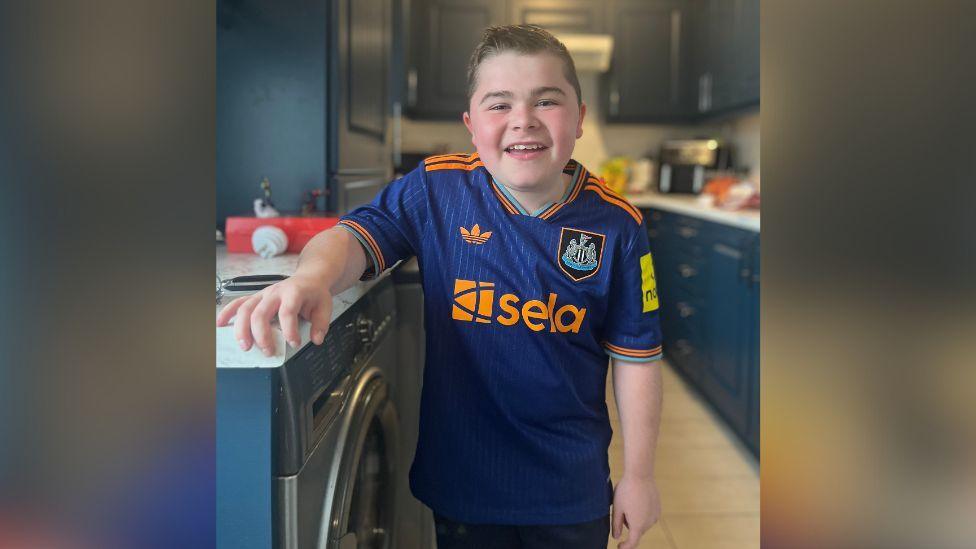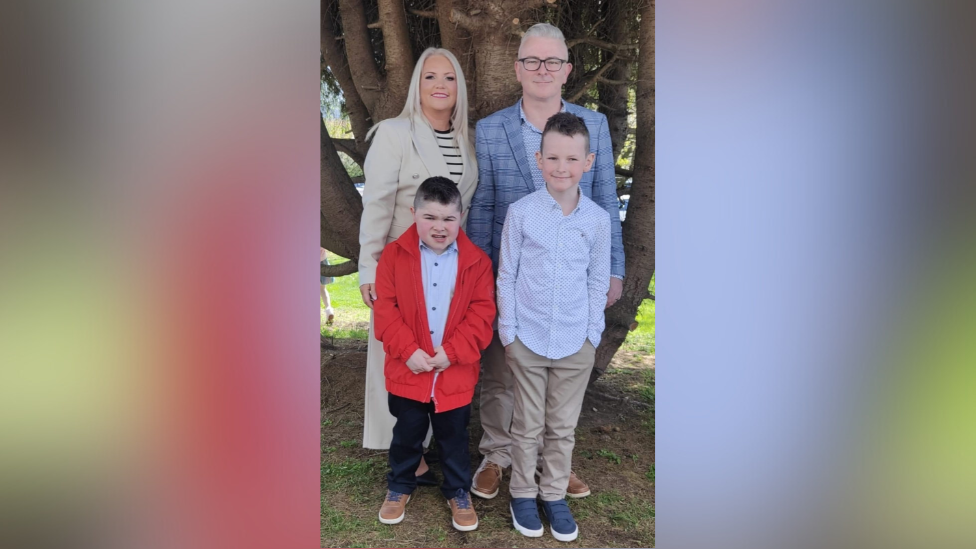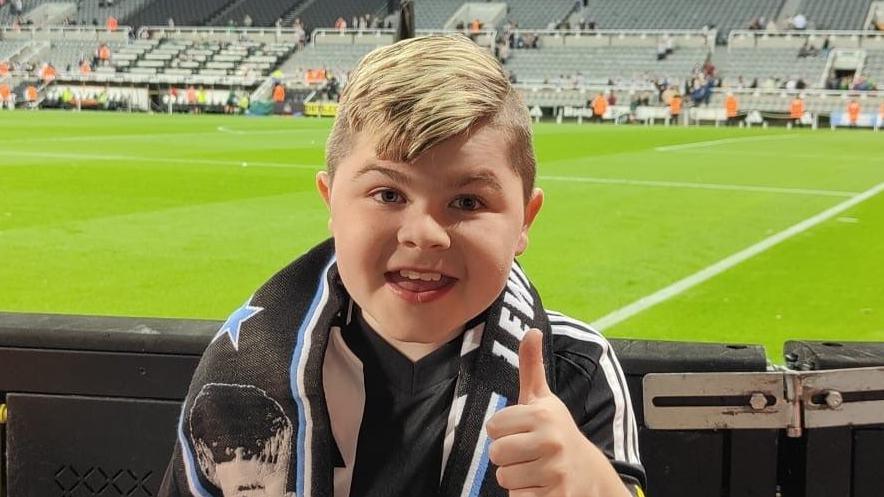Some children to access new muscular dystrophy drug
Some children to access new muscular dystrophy drug
- Published
Some children in Northern Ireland who live with a severe form of muscular dystrophy will be able to access new medication on the health service, BBC News understands.
The move from the Belfast Health Trust brings Northern Ireland in line with the rest of the UK.
Approximately 16 boys with Duchenne Muscular Dystrophy (DMD), including several teenagers, are set to benefit from the drug, givinostat.
Patients will have to meet certain criteria, including being more than six years of age and mobile.

Alfie, who is from Newry, loves football and is a keen Newcastle United supporter
DMD, which predominantly affects boys, often leads to patients being immobile and confined to a wheelchair.
DMD is one of the most severe forms of inherited muscular dystrophies.
The family of Alfie Pentony, a 13-year-old from Newry, have said said they are happy and relieved that the drug is to be made available on the health service.
Givinostat could potentially give Alfie additional years of being mobile.
A keen footballer, and Newcastle United supporter, Alfie said the news about accessibility to the drug was "absolutely brilliant" for himself and other boys.
"I was so happy, I was nearly crying," he added.
He said he hoped the drug would enable him to play football "even longer" and thanked his parents for campaigning on behalf of himself and other children.
'Immense' news

Alfie's family said they are relieved that the drug is to be made available on the health service
Alfie's dad, Jamie Pentony, told BBC News NI it was "massive news" for Alfie and the DMD community, describing it as "immense".
He said it had been "frustrating" that boys from Northern Ireland had not been able to benefit from the drug previously.
"Frustration wouldn't be a strong enough word, I can't find one," he added.
"There was a weight on our shoulders, it felt like every day we weren't getting access to the drug was the day we were letting Alfie down.
"But today is a day to celebrate, today is a day to be happy."
The drug is being made available through the Early Access Programme and means those eligible could start their treatment by mid-October.
Some families have already received letters from the Belfast Trust which outline the potential change to treatment.
The Belfast Trust, which has been approached by BBC News NI for comment, has also said that that it is committed to making the process as "smooth as possible".
What is Duchenne Muscular Dystrophy?
There are many types of muscular dystrophy.
They are inherited genetic conditions that gradually cause the muscles to weaken, leading to an increasing level of disability.
DMD is one of the most common and severe forms - it usually affects boys in early childhood and many people with the condition will only live into their 20s or 30s.
It's caused by alterations in a protein called dystrophin, which causes muscle fibres to break down.
These fibres are replaced by fibrous or fatty tissues, causing the muscle to gradually weaken.
There are about 2,500 people living with the condition in the UK at any one time.
The anti-inflammatory drug, givinostat, has been approved for use in the UK by the medicines regulator and is available early for people who meet strict criteria, on the NHS.
Individual trusts must apply to take part in the Early Access Programme (EAP).
Related topics
- Published18 February
